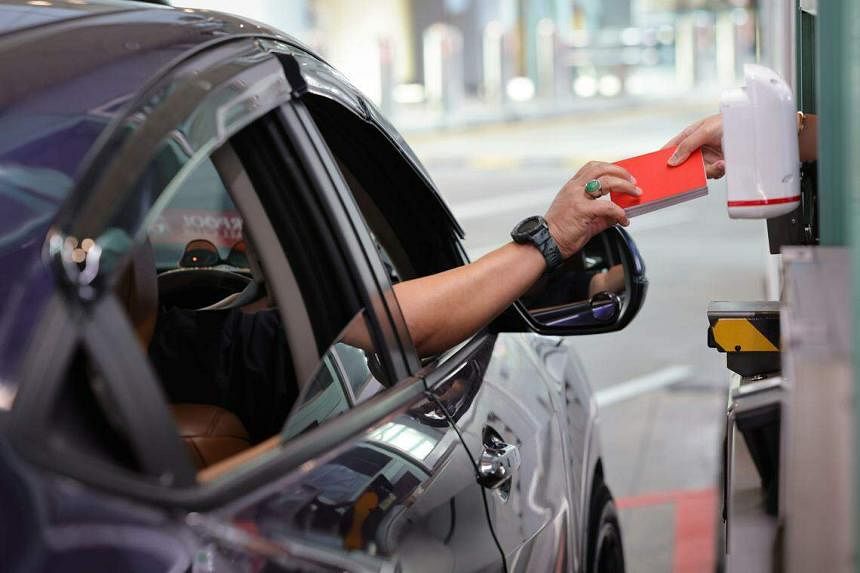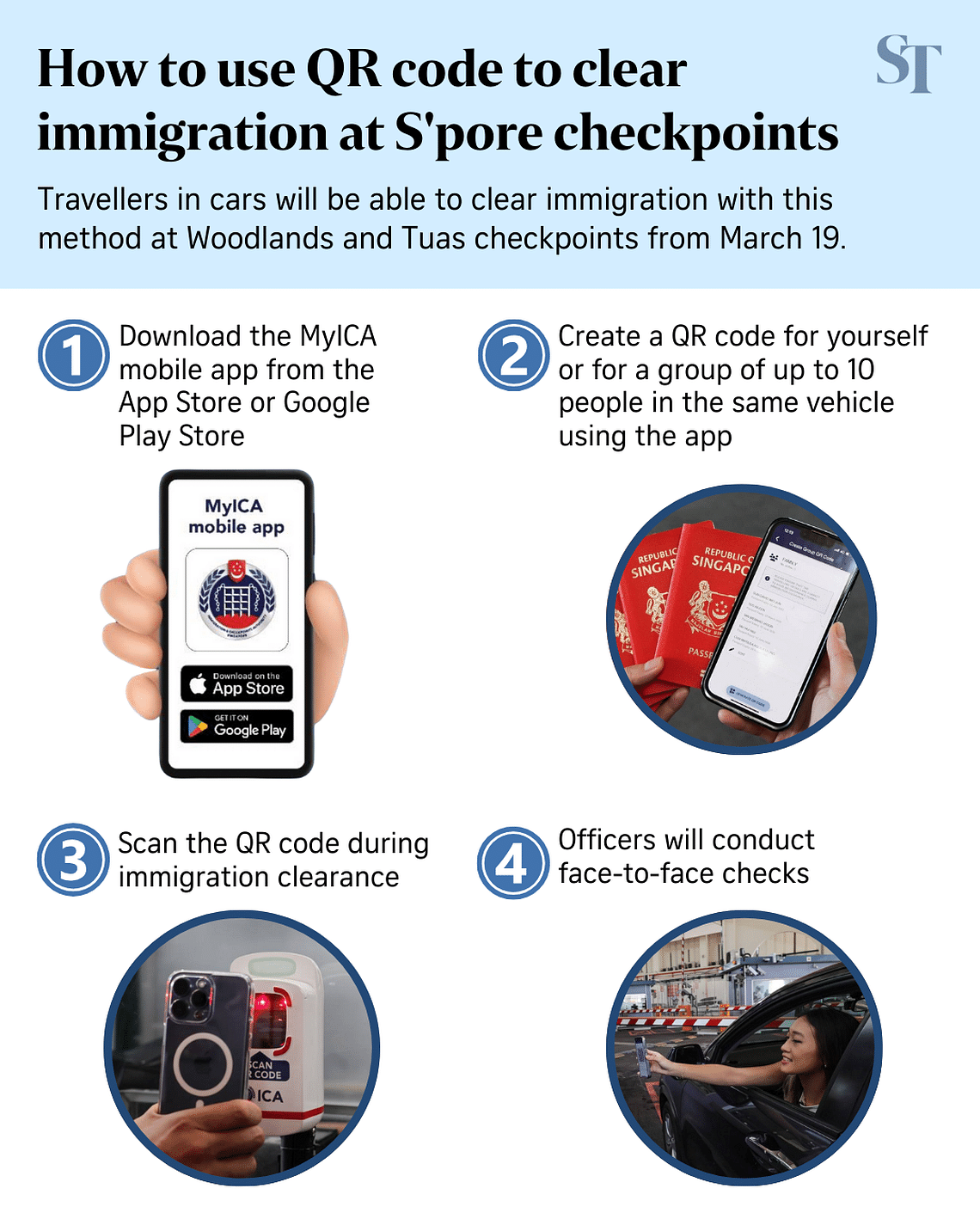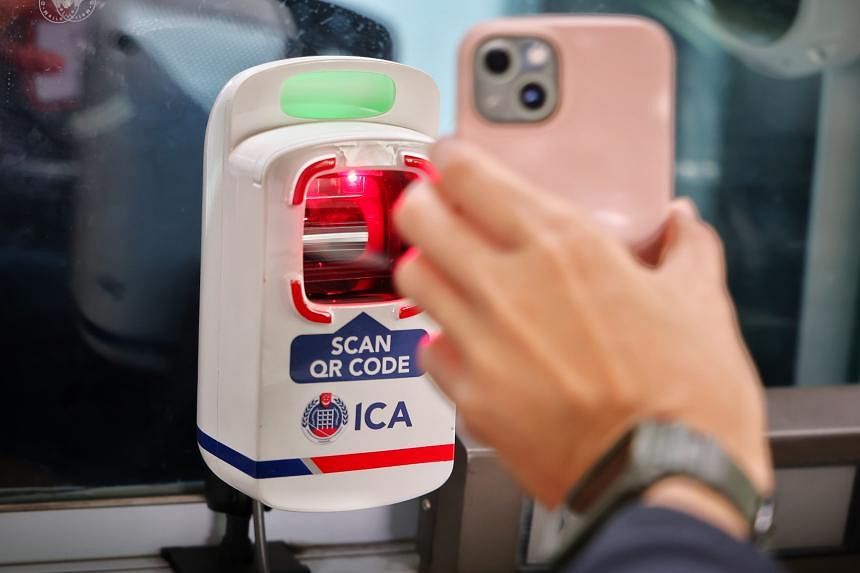SINGAPORE – About 86,000 travellers in cars passing through Singapore’s Woodlands and Tuas checkpoints have cleared immigration using the new QR code system as at March 20.
The initiative, which started on March 19, allows those travelling by car to clear immigration at the Woodlands and Tuas checkpoints more quickly without having to present their passports.
The 86,000 users represent about 46 per cent of the total number of car travellers who crossed the two checkpoints during those two days, said the Immigration and Checkpoints Authority (ICA) on March 21.
Deputy director of ICA’s operations division, Assistant Commissioner Phua Chiew Hua, said the number of QR code users is set to grow, with officers engaging drivers presenting passports to use the new system for future trips.
He added that car travellers in groups found the process to be hassle-free and faster compared with presenting multiple passports.
“The feedback gathered has been positive. Most travellers generated the QR code before reaching the checkpoints and cleared immigration smoothly,” said AC Phua.
Retired teacher Steven Lim, 80, who was on a day trip with seven others, including his brothers and their wives, said using the QR code took under two minutes.
He added: “Using our passports would probably have taken much longer as the immigration officer would have to open and check eight passports one by one.
“This is a good initiative, and it’s easy to use. I was excited to try it after reading about it in the news.”
Housewife Rasimah Idris, 61, said that while using the QR code quickened the clearance process, there could still be long lines at immigration counters during peak hours and festive periods.
“When many people want to go to the same place at the same time, there will be congestion. And if the Malaysia side is slow, it could create a tailback situation,” she added.
Mr Andrew Ang, 67, a retired construction contractor, had trouble generating a group QR code for himself and two friends, and they cleared immigration using their passports instead.
He said: “I thought all of us had to download the MyICA app to generate the QR code, but actually only one person had to do it. We’re excited to try using the QR code when we return from our trip.”
ICA encouraged car travellers to use the QR code, especially at the upcoming Good Friday long weekend from March 29 and Qing Ming Festival on April 4, when heavy traffic at both checkpoints is expected.
ICA estimates time savings of around 20 seconds for cars with four travellers and about one minute for cars with 10 travellers.
It said travellers should still have their passports with them as ICA may check them in some cases, and travellers still need to present their passports at the Malaysian side. Travellers may also need their passports while overseas as a form of identity verification.
The same group QR code can be used for multiple trips if the same number of travellers with the same passport details are travelling together.
The QR codes can be used to clear individual travellers or groups of up to 10 people in the same vehicle.
Travellers can update the QR code via the MyICA mobile application should there be any changes in passport details.
They can also create multiple group QR codes for travels with different groups of people and store them in the application under different names, such as “Family” or “Friends”.
ICA added that QR codes will be rejected if they do not tally with the details and number of travellers in the vehicle. Travellers will have to present their passports for clearance instead.
First-time visitors, including foreigners, and those re-entering Singapore using a different passport from the one used on their last visit to the country, will still need to present their passports for immigration clearance. But they can use QR codes for immigration clearance on subsequent trips.

All foreign visitors passing through the land checkpoints using the QR code or passport to clear immigration are still required to submit their Singapore arrival card within three days, including the day of arrival, before arriving in Singapore. They can do so via the MyICA mobile application or ICA’s website.
The QR code initiative is the first step towards the Automated Passenger Clearance System (APCS) to allow travellers to perform self-clearance in their cars with minimal intervention by officers.
In 2026, APCS lanes are expected to be introduced at Tuas Checkpoint, where travellers will scan a QR code generated from their MyICA app, and present their biometrics for verification. This removes the need to station an officer at every car lane. Such lanes will be introduced at the redeveloped Woodlands Checkpoint in 2028.
ICA said it plans to progressively extend QR code clearance to other vehicular clearance zones at the land checkpoints, so it can be used by travellers in other types of vehicles.


